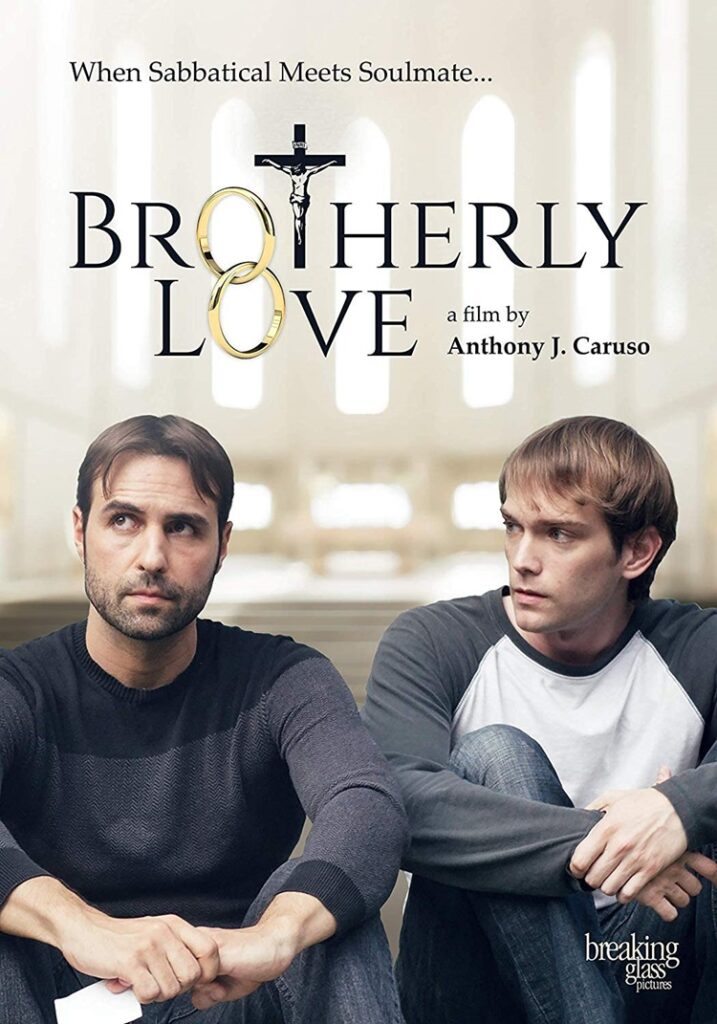
Based on the novel Seventy Times Seven by Salvatore Sapienza, Brotherly Love follows the story of Vito Fortunato (Anthony J. Caruso), a seminarian in the Catholic Church who must decide between his religious vows of chastity and his sexual freedom before becoming a Brother. Contributing to his dilemma is both his sex-crazed partner Tim (Chance McKee) and a landscaper named Gabe (Derek Babb) whom Vito falls in love with while away at a retreat.
When Vito first meets Gabe, that is when the film kicks into high gear. That is in large part due to Derek Babb who gives a performance of subtle charisma and depth. Also, while the rest of the film features rather flamboyant gay characters, Babb gives a portrayal that is less stereotypical. Gabe may be someone who’s at peace with his sexuality yet he’s hardly in your face about it.
On the contrary, Chance McKee is more energetic and flamboyant as Vito’s partner Tim. However, McKee still attempts to make Tim feel like a character rather than a caricature. Tim may be someone who talks about his sexual escapades nonstop. Yet even though his bragging and his bickering with Vito make it evident that the two of them aren’t compatible, he still cares deeply about Vito staying true to himself and his desires.
As for the rest of the film, it does make an admirable attempt to shatter stereotypes involving both religion and its setting. Despite it being set in Texas, a state with a conservative reputation, there aren’t any patronizing scenes of prejudice thrown in to give the film political urgency. Also, it doesn’t depict the conflict of staying true to one’s religious vows in a super serious and dour manner. In fact, our main character is reminded by those around him that it’s okay to both stay true to God and be true to what his heart wants.
It’s an earnest message being told in a rather flawed film. For a film that attempts to shatter stereotypes, it still presents cliched stereotypes of the queer community. Aside from Gabe, most of the characters are super flamboyant with their high-pitched voices and they constantly reference gay icons like The Golden Girls and Barbra Streisand. In fact, about half the dialogue consists of pop-culture references which got old very fast.
The screenplay was written by lead actor Anthony J. Caruso who helmed it as well. As it turns out, he seems better suited behind the camera because his acting in front of the camera is rather stiff. As previously mentioned, the film kicks into high gear when Vito meets Gabe but that’s mainly due to the strength of Derek Babb’s performance.
Along with its simplistic message of staying true to your heart, both Derek Babb and Chance McKee are able to salvage some greatness out of Brotherly Love. The film’s heart may be in the right place and it isn’t necessarily an unholy mess. But a visit to church would probably still be more fulfilling.